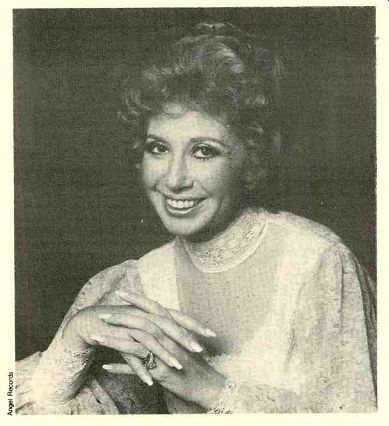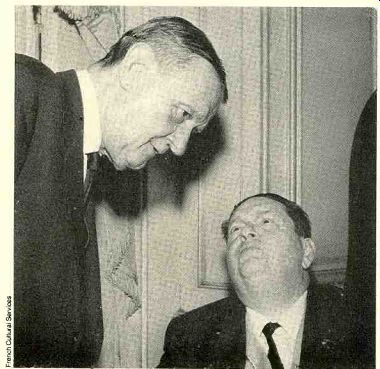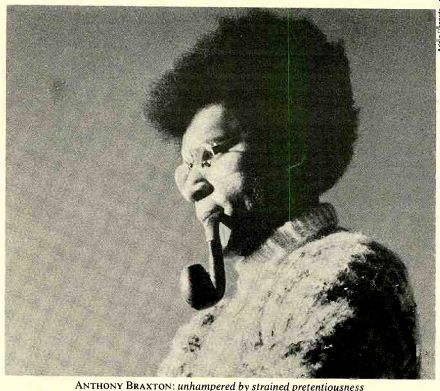STEREO REVIEW'S SELECTION OF RECORDINGS OF SPECIAL MERIT:
BEST OF THE MONTH
Soprano Beverly Sills Opens Up a New Career in Angel's "Music of Victor Herbert"

WITH her new Angel album of Victor Herbert songs, Beverly Sills demonstrates that she does not in tend to let anyone escape: one way or another she will conquer us all. If you have not been overwhelmed by her operatic triumphs, impressed by her work as a concerned citizen lobbying for musical institutions and other worthy causes, or completely won over by her wit and charm on TV talk shows, she may well recruit you as a fan with this record. I, for one, find it irresistible.
I cannot remember when I last heard the nine songs included in this re lease-I had forgotten how beautiful they are. And I never knew Miss Sills could sing them so well-usually in this repertoire the songs are much better than their singers. Even so, there is no hint of the great diva out slumming in non-operatic ghettoes; she sings the songs with utmost warmth, conviction, and sincerity. German and Austrian op era singers have always sung the Central European operetta literature with similar affection, just as Spanish opera stars sing zarzuela favorites. But American operetta has suffered sad neglect since the great days of radio in the Thirties and Forties, when such op era singers as Gladys Swarthout, James Melton, and Rise Stevens also had important careers in radio and regularly filled the airwaves with Herbert, Sigmund Romberg, and Rudolf Friml.
And so, hearing Beverly Sills sing Victor Herbert will remind some listeners of those "vacationing" opera stars as well as a number of singers who made their careers almost exclusively in radio (primarily with operetta favorites)-such singers as Jean Dickinson, Frank Munn, and Vivian della Chiesa.
For others, it will call to mind the early musical films that accustomed a generation of Americans to the sound of the classically trained voice-the movies of Grace Moore and Jeanette Mac Donald, for example (two of MacDonald's greatest hits are included here, Italian Street Song and Alt! Sweet Mystery of Life). But I don't know quite what younger people, who have no nostalgic associations with these songs, will make of the album. I hope they will at the very least be able to appreciate the beauty of the melodies and the felicity with which the excellent lyrics are matched to the music; this may help them to understand why these songs not only became popular hits of the musical theater before World War I, but why they continued to be sung as light classics for decades afterwards. When you hear older people complaining that they don't write songs the way they used to, these are the songs they are talking about.
Herbert was primarily a great melodist: as Miss Sills puts it in the liner notes, "I don't think Victor Herbert ever composed an ungrateful vocal phrase." She is very likely right; certainly everything here is extremely grateful to Miss Sills' voice. Her operatic background is evident in the security of her high notes, the ease with which she executes the vocal ornaments, and her long breath, which permits her plenty of very useful flexibility in phrasing.
Most of the songs are songs of sentiment, tender expressions of love and romance, and in them Miss Sills is at her best. An American artist singing the American language, she projects the lyrics well, knowing exactly which words to stress, just when to pause a bit for emphasis, when to put a little smile into the voice. American singers can compete with anyone in musicality, but they are hard put to compete, say, with Italians in making an Italian aria exciting. But, in just the same way, the American singer has no peer in this repertoire. I hope other Americans will follow Miss Sills' example, and I wish them luck in trying to match what she has achieved in this album.
Miss Sills' own favorite of these songs is When You're Away. I find it hard to choose. I'm very fond of her wistful To the Land of My Own Romance, but I'd vote twice for her Kiss Me Again-it is simply ravishing the way her voice falls from the high note on the line "Tenderly pressed/ Close to your breast" and the way it throbs with urgency when she pleads "Kiss me again! Kiss me! Kiss me again!" There is a surprising amount of vibrato present in some of the songs, but it is more than made up for by a warmth in the middle voice which I haven't heard in her operatic work for some time.
Andre Kostelanetz, an equal collaborator here (he has recorded an orchestral medley for each side of the disc) is completely at home with this music. He had a great career in radio, of course, and he has successfully brought all that experience to bear in re-creating with the London Symphony the instantly recognizable sound of his old radio orchestra. The total sound of the disc, by the way, has brilliance, clarity, and a marvelous, free openness in SQ quadraphonic playback, tightening up only slightly in stereo-it would be a little hard, I think, to tell the difference without instantaneous A-B-ing.
The only song on the album I had never heard before is the comedy number Art Is Calling for Me (I Want to Be a Prima Donna). Its amusing lyrics bring out Miss Sills' beguiling soubrette quality. One of the lines is "I long to hear them shouting 'Viva' to the diva." Okay. Of all Beverly Sills' many records, this one has given me the most pleasure-so, Viva Diva!
William Livingstone
VICTOR HERBERT: Music of Victor Herbert. A Kiss in the Dark; Italian Street Song; To the Land of My Own Romance; Kiss Me Again; Ah! Sweet Mystery of Life; Art Is Calling for Me; Thine Alone; When You're Away; Romany Life. Beverly Sills (soprano); London Symphony Orchestra, Andre Kostelanetz cond. Orchestral Medley: I'm Falling in Love with Someone; Moon beams; Gypsy Love Song; Habanera.
Orchestral Medley: Sweethearts Waltz; March of the Toys; Toytand; The Streets of New York; Indian Summer. London Sym phony Orchestra, Andre Kostelanetz cond.
ANGEL SFO-37160 $6.98.
A Delightful Disc of Perfectly Up-to-date Early Piano Music by The Late Darius Milhaud IT seems as though we are always on I the verge of rediscovering the late Darius Milhaud, and it is just possible that William Bolcom's excellent new album of his piano music on the None such label may do the trick.
The period 1915-1925 is a particularly attractive one in Milhaud's work, and the music he wrote in that time can now be seen to be an essential part of post-World-War-I abandon and exoticism.
As Bolcom points out in his fine notes, Milhaud would never fit our twentieth century notion of the artist as introvert ed, alienated, and anxious. He considered himself a happy man and always insisted that he created out of love, not agony. One result of this was that he gleefully soaked up experience of every kind; the world was his oyster, and no kind of musical expression was really alien to him. The result, of course, was that in his music he could mix the most unlikely ingredients together quite unselfconsciously.
In the case of the early piano works at hand, a subtle blend-and it is subtle-of ragtime and jazz, of Brazilian music and pop, with an unmistakable French style makes the music not only irresistible but, in some strange way, perfectly contemporary. The famed polytonality, for example-in effect, the right and left hands playing in different keys-is certainly perfectly natural-sounding today.
The three suites recorded in this Nonesuch release make an interesting sequence. Le Printemps, begun in 1415, is the least known and least characteristic; the influences of Debussy and Sa tie are still noticeable, along with more than a bit of dissonant originality. The Saudades do Brasil (loosely, "Saluta tions from Brazil") are two books of short pieces named for districts of Rio de Janeiro and dedicated to acquaintances and colleagues of the period when Milhaud was secretary to the French minister to Brazil (poet-dramatist Paul Claude') in what was then the Brazilian capital. The Rag-Caprices-a highly stylized notion of rag, to be sure, but brilliant pieces of work nonetheless-are among the relatively few masterpieces of European twentieth century piano music. William Bolcom (who, incidentally, studied with Milhaud) performs all this with a great feeling for its special sensibilities: the pieces are filled with the joy of living and graced with the gift to be simple (though sophisticated). Just now, exactly what we'd all like to be.
Eric Salzman
MILHAUD: Saudades do Brasil; Trois Rag-Caprices; Le Printemps. William Bolcom (piano). NONESUCH H-71316 $3.96.
More Than a Sprinkling Of Symbolism in Joni Mitchell's "The Hissing Of Summer Lawns" JONI MITCHELL'S viewpoint has usually been first-person-singular, with the world seen as an incidental part of the examination of the quandary inside a relationship. In her new album "The Hissing of Summer Lawns," the view point seems more nearly general, less specific, and the stories she tells collectively yield some truths (or maybe they're only suspicions) that are social as well as personal.
There is still the question of how much romanticism balanced against how much "reality" is good for us, but it is complicated this time out by the irony of what has happened to the set tings, the environments-the city has paradoxically become the place primeval, while the country (nowadays the suburbs) has become the place where too much civilization is beginning to take its toll. Joni Mitchell shows us people trying to recapture a certain irresponsibility or a spontaneity-the ability to dance, to play-and they come off looking either a bit tawdry or frantic. Or she has them (us) looking for something through "lifestyle" affectations in New York, city of cities, or trying to beat back boredom and rage in Suburbia-especially this, I think. She has built a song around the Johnny Mandel-Jon Hendricks relic of jazzbo slickness called Centerpiece that deals not only with the problem of "living happily ever after" but with the problem of centerpieces-their having more to do with making an impression than with supplying nourishment.
It is a difficult album, you see, partly because Mitchell is not moralizing, not boiling a situation down so any right thinking listener can interpret it in only one way. It is difficult too because it doesn't sound like anything we're accustomed to, familiar as we are with the machinery behind the popular song, nor does it go out of its way to be pretty or tuneful. The Jungle Line, for example, is about an asphalt jungle-but seen as something a beautiful madman such as the "primitive" painter Theodore Rousseau might have created ("Beauty and madness to be praised," she says in another song, about a movie-style greed for the root flavor of life). It is an experiment, a successful one, exquisitely lyrical images enhanced by almost frightening synthesizer whoops and warrior drums, and it doesn't mind being pulled out of the al bum to be considered as a separate whole. Most of the other pieces don't disengage from the overall context quite so easily.


------- TOP: Darius Milhaud (seated) accepts the congratulations
of fellow composer Georges Auric at a 1966 party celebrating his nomination
for the Legion d'Honneur. ABOVE, singer/songwriter Joni Mitchell.
Throughout, I am alternately struck the notion that she has done little work on her melodies, that she has just ambled along the path of least resistance, and by the opposite notion (fostered by the delicacy of the tune to Shades of Scarlet Conquering, or that of Shadows and Light) that she is up to something too subtle for me to detect at this early stage in my relationship with the music. The lyrics, too, sometimes remind me of what Wilfrid Sheed said about symbolism: if the reader (or listener) gets it, you've taken an unnecessarily roundabout way of communicating with him, and if he doesn't get it you haven't communicated with him at all. That's just the trouble with symbol ism, though, and certainly no reason not to use it. There's more to poetry than simple communication-other wise telegrams would be literature.
And so the appeal of Mitchell's metaphors lies in their richness, in how long you can continue to pull new ideas and fresh slants out of them, no matter how many of them came from her head, how many from yours.
I hope I've made it clear that this isn't much of a party record; you'll have to deal with it privately, as you would read a book. But it should keep you occupied for about as long as you want it to-and how often does "popular" music do that? Noel Coppage
JONI MITCHELL: The Hissing of Summer Lawns. Joni Mitchell (vocals, guitar, piano, synthesizer); John Guerin (drums); Max Bennett (bass); Larry Carlton (guitar); other musicians. In France They Kiss on Main Street; The Jungle Line; Edith and the King pin; Don't Interrupt the Sorrow; Shades of Scarlet Conquering; The Boho Dance; Harry's House-Centerpiece; Sweet Bird; Shadows and Light. ASYLUM 7E-1051 $6.98, C) ET8-1051 $7.98, C) TC5-1051 $7.98.
----------------
Anthony Braxton: Improvisations as Liberated and Fresh As Louis Armstrong's
REVIEWING records can entail a great deal of suffering when one is forced to sit through entire albums that normally would not rate ten 33 1/3 rpm's of one's time, but once in a while there comes an album that makes up for such aural assaults. Anthony Braxton's "Five Pieces 1975" is such an album: a significant new release by an artist who may well be the most important jazz composer/player since John Coltrane.
Some new artists are considered important by critics because they break with convention. Too often, this sort of thinking has catapulted into the lime light musicians who are high on gimmickry and low on talent, but such is not the case here. Anthony Braxton is, in fact, not a musical revolutionary; what he does is rather tame compared to the output of most of his contemporaries in the field of the so-called "new music," yet it is thoroughly modern by any reasonable standards. Braxton's improvisations are structured-which in some circles is considered downright sinful-and they are as liberated and fresh as Louis Armstrong's solos were fifty years ago, unhampered by the strained pretentiousness that marks the efforts of such groups as the Art Ensemble of Chicago, which, like Braxton, sprang from Chicago's Association for the Advancement of Creative Music.
Sad to say, most of Braxton's colleagues from the AACM appear to suffer from the misconception that musical freedom means a total disregard for the past. They forget that the true innovators-men like Lester Young, Charlie Parker, and Bud Powell merely took the music of their predecessors a step further; had they not themselves been in complete command of their instruments, and had they merely broken with tradition for the sake of being different, the world would soon have forgotten them. Braxton is breaking new ground without smashing the old, he is master of his instruments, and he is an aesthetic creator with a fertile musical imagination that has yet to reach its zenith.
Anthony Braxton is also a most interesting composer, and if there is just a smattering of pretense about him, it is in his use of schematic diagrams as titles for his compositions: I find it a bit too cute, quite apart from the fact that my typewriter is incapable of rendering such drawings. That, however, is a very minor complaint, and this al bum-unlike the previous one-does contain one tune with a typable title, the 1940 ballad You Stepped Out of a Dream, which Braxton and Dave Hol land play beautifully as an alto saxophone and bass duet. Braxton has re corded standards before, but he should do them more often.
Trumpeter Kenny Wheeler and Dave Holland, who also appeared on Braxton's last album ("New York, Fall 1974," Arista AL 4032) show even greater rapport with their leader this time around, and drummer Barry Altschul is excellent as well. All three men are forces to be reckoned with, and all seem to have in common with Braxton a refreshing refusal to compromise or bow under to the commercial pressures that so often turn outstanding jazz talent into contestants vying for that car rot the industry calls a gold record.
-Chris Albertson
ANTHONY BRAXTON: Five Pieces 1975. Anthony Braxton (saxophones, flutes, clarinets); Kenny Wheeler (trumpet, flugelhorn); Dave Holland (bass); Barry Altschul (drums). You Stepped Out of a Dream; G-647. . etc.; 4038-NBS . . . etc.; 489 M . . . etc.; BOR . etc. ARISTA AL 4064 $6.98.

----------- ANTHONY BRAXTON: unhampered by strained pretentiousness
----------
Also see: